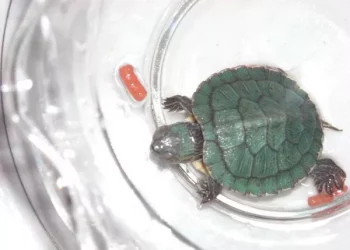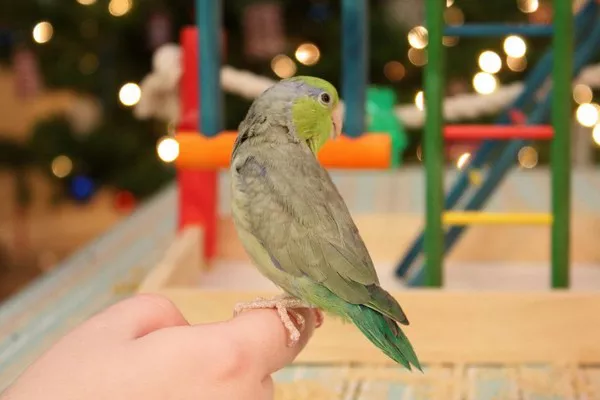Corn snakes, a popular choice among reptile enthusiasts, are often admired for their vibrant colors and manageable size. These non-venomous snakes are known for their docile nature, but potential owners sometimes wonder about their aggression levels. Are corn snakes truly as gentle as they seem, or do they have a hidden temper? This article explores the behavior of corn snakes to determine whether they are aggressive, factors influencing their temperament, and what prospective owners should know to foster a positive relationship with their pet.
What Defines Aggression in Snakes?
Understanding Snake Aggression
Aggression in snakes can be defined as a behavior intended to intimidate or defend themselves against perceived threats. This can manifest in various ways, including:
Hissing: A warning sound made by exhaling air rapidly.
Striking: Biting in defense or aggression.
Defensive Postures: Displaying their body in a way that makes them appear larger or more threatening.
Unlike mammals, snakes do not display aggression based on emotions like anger. Instead, their behavior is often driven by survival instincts, stress, or discomfort.
Are Corn Snakes Naturally Aggressive?
The Nature of Corn Snakes
Corn snakes (Pantherophis guttatus) are generally known for their calm and gentle nature. In their natural habitat, they are solitary and non-aggressive, focusing on avoiding predators rather than confronting them. Several factors contribute to their reputation as docile pets:
Behavior in the Wild: In the wild, corn snakes are primarily nocturnal and shy, preferring to hide rather than engage in aggressive behavior.
Captivity Adaptation: Corn snakes bred in captivity often have even more subdued temperaments, as they are accustomed to human interaction and handling.
Common Misconceptions
There are misconceptions about corn snakes being aggressive, often stemming from misunderstandings about their behavior or lack of experience with snake care. For instance, a corn snake may strike if it feels threatened or mishandled, but this is not indicative of a general aggressive nature.
Factors Influencing Corn Snake Temperament
Handling and Socialization
Proper handling and socialization are crucial in shaping a corn snake’s behavior. Snakes that are frequently handled and exposed to gentle, positive interactions tend to be more relaxed and less defensive. Here’s how handling affects temperament:
Acclimation: Regular handling helps corn snakes become accustomed to human presence and touch, reducing their stress and defensive behaviors.
Stress Management: Snakes that are not regularly handled or are handled improperly may become stressed, which can lead to defensive behaviors such as striking or hiding.
Habitat and Environment
The environment in which a corn snake is kept significantly impacts its behavior. A well-maintained habitat contributes to a snake’s well-being and reduces stress, which can influence its temperament:
Enclosure Size: Providing a spacious and well-decorated enclosure helps corn snakes feel secure and reduces stress-induced aggression.
Temperature and Humidity: Proper temperature and humidity levels are essential for a corn snake’s health and comfort. Incorrect conditions can lead to discomfort and stress, which may cause aggressive reactions.
Health and Well-being
A corn snake’s health directly affects its behavior. Illness or discomfort can lead to irritability and defensive actions:
Health Issues: If a corn snake is ill, it may become more defensive or reclusive. Regular veterinary check-ups are important to ensure the snake is healthy and to address any potential issues promptly.
Signs of Stress: Observing signs of stress or discomfort, such as changes in feeding behavior or excessive hiding, is crucial in managing the snake’s well-being and preventing aggressive behavior.
Typical Corn Snake Behavior
Feeding Behavior
Corn snakes are typically non-aggressive during feeding. They are constrictors, meaning they wrap around their prey to subdue it before consuming it. However, their feeding behavior can sometimes be mistaken for aggression:
Feeding Response: A corn snake may strike at food in a manner that could seem aggressive, but this is a natural feeding response rather than an indication of overall temperament.
Feeding Schedule: Regular, consistent feeding can help maintain a corn snake’s calm demeanor. Avoid handling a snake immediately after feeding, as it may be more sensitive during this time.
Defensive Behavior
While corn snakes are generally calm, they may exhibit defensive behaviors if they feel threatened. Common defensive actions include:
Hissing: A warning sign indicating the snake feels threatened.
Striking: A defensive response that is usually a last resort when the snake feels cornered or in danger.
Understanding these behaviors helps in interpreting the snake’s actions correctly and ensuring that interactions are positive.
How to Minimize Aggression and Ensure a Positive Relationship
Proper Handling Techniques
To foster a good relationship with a corn snake and minimize defensive behaviors, follow these handling tips:
Gentle Touch: Always handle your snake gently and avoid sudden movements that might startle it.
Frequent Interaction: Regular, calm interactions help your snake become accustomed to handling and reduces stress-related aggression.
Avoid Overhandling: Limit handling sessions to prevent overstimulation and stress. Aim for short, positive interactions several times a week.
See Also: Do Corn Snakes Have Health Problems?
Enclosure Maintenance
A well-maintained enclosure supports a corn snake’s health and can minimize stress:
Clean Environment: Regularly clean the enclosure to prevent the buildup of waste and bacteria, which can impact the snake’s health.
Appropriate Decor: Provide hiding spots and climbing structures to mimic the snake’s natural habitat, making it feel secure and reducing stress.
Monitoring and Health Care
Regular monitoring and care are essential for keeping a corn snake healthy and minimizing aggressive behavior:
Routine Check-ups: Schedule regular veterinary visits to monitor your snake’s health and address any issues promptly.
Behavior Observation: Pay attention to any changes in behavior, such as increased hiding or changes in feeding habits, as these may indicate health problems or stress.
Comparing Corn Snakes to Other Snake Species
Corn Snakes vs. King Snakes
King snakes (Lampropeltis spp.) are another popular pet snake species. While generally docile, they can display more defensive behaviors compared to corn snakes. Corn snakes are often preferred for beginners due to their typically calmer demeanor.
Corn Snakes vs. Ball Pythons
Ball pythons (Python regius) are known for their shy and defensive nature when compared to corn snakes. Corn snakes generally require less maintenance in terms of handling and display less defensive behavior.
Corn Snakes vs. Reticulated Pythons
Reticulated pythons (Malayopython reticulatus) are much larger and more temperamental compared to corn snakes. They can exhibit more aggressive behaviors, particularly if they are not properly socialized or handled.
Conclusion
Corn snakes are widely regarded as one of the most docile and manageable snake species available to pet owners. While they are not completely free of defensive behaviors, these behaviors are typically a reaction to stress or perceived threats rather than inherent aggression. With proper care, handling, and a well-maintained environment, corn snakes generally exhibit calm and gentle temperaments.
Prospective snake owners should focus on providing a stress-free environment and handling their corn snakes regularly and gently to foster positive interactions. By understanding the factors that influence snake behavior and recognizing the signs of stress, you can ensure a harmonious relationship with your corn snake, minimizing any potential for aggression and enjoying the unique companionship these fascinating reptiles offer.
Related Topics:
























